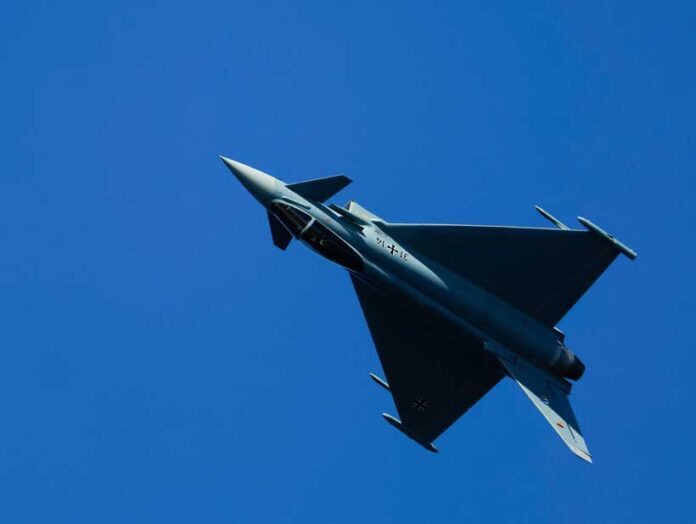NEWS BRIEF
Germany’s budget committee approved the purchase of 20 new Eurofighter jets for €3.75 billion ($4.36 billion), part of a broader €7 billion defense package aimed at strengthening NATO’s electronic warfare and data collection capabilities. The jets will be delivered between 2031 and 2034, extending the Eurofighter’s operational lifespan until 2060.
WHAT HAPPENED
- Germany’s budget committee approved 20 new Eurofighter jets under “tranche 5” for €3.75 billion, with deliveries scheduled from 2031 to 2034.
- The jets will enhance NATO’s electronic warfare and reconnaissance capabilities, ensuring the Eurofighter remains operational until 2060.
- The committee greenlit 14 defense proposals totaling over €7 billion, all exceeding the €25 million approval threshold.
- The defense ministry pledged further “considerable” arms procurement proposals to improve Bundeswehr readiness and equipment.
WHY IT MATTERS
- The investment reflects Germany’s commitment to modernizing its military amid rising European security challenges and NATO obligations.
- The Eurofighter’s advanced electronic warfare systems will bolster NATO’s collective defense and intelligence-gathering capacity.
- The approval signals Germany’s shift toward long-term defense planning, moving beyond reactive spending to sustained capability development.
- The €7 billion package underscores Europe’s push for military self-reliance amid global geopolitical instability.
IMPLICATIONS
- NATO Strengthening: Enhanced German air power contributes to alliance deterrence, particularly in Eastern Europe and the Baltic region.
- Defense Industry: The deal supports Europe’s aerospace sector, ensuring production continuity for Eurofighter partner nations.
- Strategic Autonomy: Germany’s procurement aligns with EU efforts to reduce dependency on U.S. defense systems.
- Budget Priorities: The scale of investment may spark domestic debate over military spending versus social and climate initiatives.
This briefing is based on information from Reuters.


